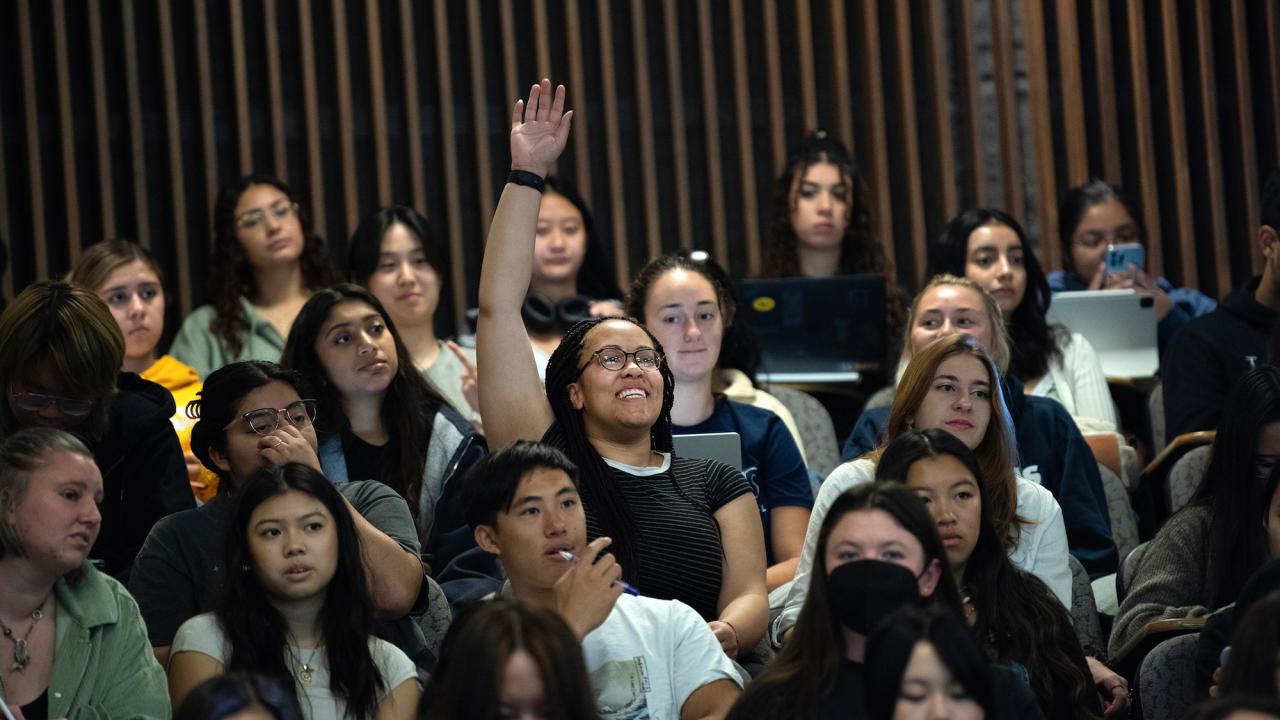The University of California, Davis, made significant gains in the diversity of its entering class as it enrolled a total of 40,848 students in fall 2023, according to systemwide statistics released today (Jan. 19).
The overall enrollment — including undergraduate, graduate and professional students as well as veterinary and medical residents and interns at all locations — represented an increase of 84 students, or 0.2%, over fall 2022.
UC Davis enrolled a total of 9,234 new undergraduates, including 6,577 as first-year students, 2,635 as transfer students and 22 others seeking a second undergraduate degree.
Among new undergraduates, 84.7% were California residents, 4.9% were U.S. domestic students from outside California and nearly 10.4% were international students.
The average first-year student’s UC grade point average, or GPA, was 4.07, and the median was 4.11. More than 75% of first-year students had a weighted GPA above 3.96.
The average transfer GPA was 3.55, and the median was 3.58. More than 75% of newly enrolled transfer students had a GPA above 3.33.
Representation
Among new California undergraduates, the percentage of students from historically underrepresented groups (African American, American Indian, Hispanic/Latino(a) and Pacific Islander) increased to 36.2% — the highest percentage in 25 years. Last fall, the percentage was 32.1%.
- African Americans rose by 22.5% (from 289 last year to 354) and accounted for 4.7% of new California undergraduates.
- American Indians increased by 15.5% (from 45 last year to 52) and were 0.7% of new California undergraduates.
- Hispanic/Latino(a) students also increased by 16.9% (from 1,976 last year to 2,311) and represented 30.5% of new California residents.
- The number of Pacific Islanders decreased by 22.6% (from 31 last year to 24) and made up 0.3% of new California residents.
Among the new students, 40.6% indicated they would be in the first generation of their family to graduate from a four-year university, and 34.6% were recipients of the federal Pell Grant for low-income students.
Robert Penman, executive director of Undergraduate Admissions, attributed the gains in underrepresented minorities and low-income students to outreach and recruitment efforts that predominately serve first-generation and low-income students. “Expanding our efforts to serve students who have not historically experienced higher education has really helped diversify the pipeline of students applying to UC Davis,” he said.
Penman also said his team provided application readers with metrics that improved their understanding of neighborhood and school context in the review of applications in California and throughout the United States.
He added that increased enrollment targets allowed the campus to offer more spaces to California residents, who tend to be more diverse than nonresident students.
Calculations for planning purposes
Counted among the university’s total enrollment, some students study at the Sacramento campus, facilities across California and beyond. UC Davis also tracks student population averaged over the three quarters of an academic year for implementing the 2018 Long Range Development Plan, or LRDP, capacity of 39,000 students at the Davis campus. In keeping with the last few years, the LRDP three-quarter average is estimated to be just under 37,000 for 2023-24.
Media Resources
Statistics for the university system and UC Davis
Media Contact:
- Julia Ann Easley, News and Media Relations, 530-219-4545, jaeasley@ucdavis.edu
